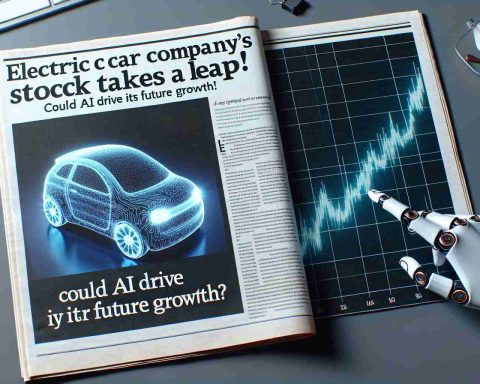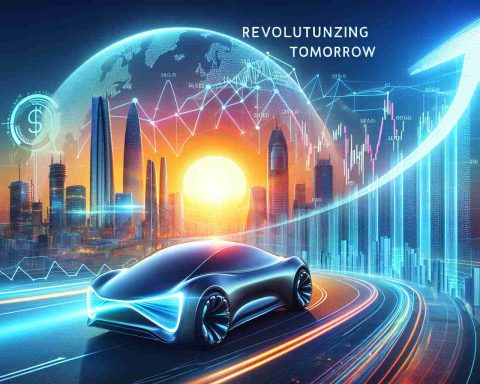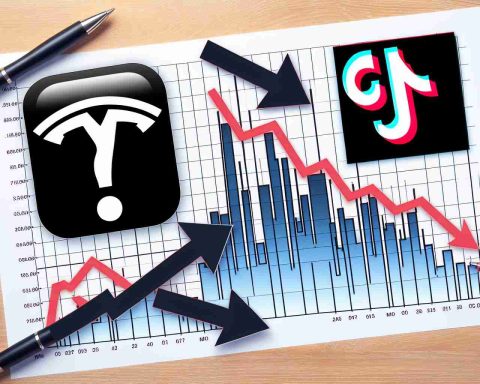In a recent Senate Commerce Committee confirmation hearing, Sean Duffy, the President-elect Donald Trump’s nominee for the U.S. Department of Transportation, raised a contentious issue regarding electric vehicle (EV) owners. He suggested that these drivers might need to contribute financially for road usage, a statement that has generated discussion and concern.
Duffy acknowledged the difficulties in implementing such a system, particularly since EV owners do not purchase gasoline and thus do not contribute to fuel tax revenues. This absence has led to a perceived funding deficit for road repairs, primarily financed through the collection of gasoline and diesel taxes.
Implementing a tax or fee on EV usage would not fall solely within the powers of the Department of Transportation. Changes would require collaboration with Congress to pass new legislation, potentially revising the Highway Revenue Act established in 1956.
Currently, several states have already begun charging fees to EV owners, recognizing the lack of fuel contributions. For instance, Georgia and Illinois employ a flat fee structure, while Utah bases fees on vehicle weight and mileage.
Duffy’s comments underscore a growing political divide over electric vehicles, as the incoming administration positions EVs within the broader context of its energy policies, which favor traditional fossil fuel sources over electric alternatives.
The Future of Electric Vehicles: Funding Infrastructure or Facing Backlash?
The discussion surrounding electric vehicles (EVs) and their impact on road usage fees epitomizes a critical intersection of technology, infrastructure, and public policy that will significantly affect our environment, humanity, and economy. As we move towards a future increasingly reliant on electric mobility, the implications of Sean Duffy’s statements during his confirmation hearing for the U.S. Department of Transportation highlight pressing questions about funding and fairness in our road maintenance systems.
The growing adoption of electric vehicles, intended to reduce our carbon footprint and reliance on fossil fuels, inadvertently presents a dilemma regarding how to fund the infrastructure required to maintain safe and efficient roadways. Traditionally, road repairs and constructions have been funded through taxes on gasoline and diesel fuels. However, as more drivers shift to EVs and abandon conventional fuel consumption, the revenue that typically supports this essential infrastructure is waning, creating a potential funding deficit.
From an environmental perspective, fostering the adoption of EVs is crucial for reducing greenhouse gas emissions, improving air quality, and promoting sustainable practices. However, insufficient funding for roads could undermine the overall benefits of electrification, particularly if deteriorating infrastructure leads to accidents or logistical challenges that result in increased carbon emissions. Maintaining well-kept roads is essential not only for public safety but also for enabling smoother traffic flow and reducing congestion, which can otherwise lead to higher emissions from idling vehicles.
Humanity also stands to be affected by this infrastructure conundrum. The shift toward electric vehicles is not merely an environmental imperative; it signals a significant transformation in transportation technology that could redefine urban living and mobility. However, if EV owners are subjected to new taxes or fees, it could deter potential buyers who are looking for sustainable alternatives, thereby slowing the transition to a cleaner transportation landscape. In this context, equity and fairness in taxation become pivotal discussions, raising concerns about whether the incoming policies will favor certain groups over others.
Economically, the debate around EV users contributing to road usage fees poses risks and opportunities. On one hand, there could be a push for new legislation that creates a sustainable funding model that ensures road infrastructure remains robust, thus supporting economic activities reliant on transportation. On the other hand, overregulation or heavy taxation may stifle the burgeoning EV market, leading to job losses in emerging sectors in clean energy and technology, delaying investments in associated infrastructure such as charging stations.
Looking towards the future of humanity, the balance between environmental goals and infrastructure sustainability is precarious. Policymakers are tasked with charting a course that recognizes the long-term benefits of electric vehicles while also ensuring that society can sustain the infrastructure necessary to support them. Collaboration between federal and state governments, alongside private sectors, will be essential in crafting innovative funding solutions such as vehicle miles traveled (VMT) taxes or diversified fees that equitably distribute the financial responsibilities of road maintenance.
Ultimately, as we stand on the cusp of a transportation revolution with electric vehicles at the forefront, it is essential that we approach these challenges with foresight and inclusivity. The pressure to evolve must not come at the cost of disenfranchising those who embrace sustainable practices, as we collectively navigate a path towards sustainability and innovation in mobility for a healthier planet and humanity.
The Future of Electric Vehicle Funding: What You Need to Know
Understanding the Current Landscape of EV Funding
As electric vehicles (EVs) gain traction in the automotive market, the discussion surrounding road usage fees for EV owners is becoming increasingly relevant. Sean Duffy, the recent nominee for the U.S. Department of Transportation under President-elect Donald Trump, sparked significant dialogue during a Senate Commerce Committee confirmation hearing by proposing that EV drivers may need to contribute financially for road maintenance.
Key Insights on EV Funding Challenges
1. Funding Shortfalls: Traditionally, road repairs and maintenance have been funded through gasoline and diesel taxes. However, with the rise of EVs, the decline in fuel tax revenues presents a significant challenge for road infrastructure funding. This has spurred states to explore alternative revenue models to fill the financial gap.
2. State-Level Initiatives: Several states, including Georgia, Illinois, and Utah, have already implemented fees for EV drivers. Georgia and Illinois utilize a flat fee structure, while Utah’s model is based on vehicle weight and mileage. These initiatives reflect an understanding of the need for EVs to contribute to road maintenance despite not consuming fuel.
3. Legislative Changes Required: Any significant restructuring of the funding model will require collaboration with Congress. Modifying the Highway Revenue Act, established in 1956, to incorporate EV usage fees will necessitate comprehensive legislation.
Pros and Cons of EV Usage Fees
Pros:
– Sustainable Funding: Implementing a fee could ensure consistent funding for road repair and maintenance, addressing budget shortfalls caused by declining fuel tax revenues.
– Equitable Contribution: EV drivers, who benefit from road infrastructure, would contribute to maintenance, aligning the funding model with usage.
Cons:
– Potential Pushback: Many EV owners may resist additional fees, arguing that they already contribute through other taxes and that these fees could discourage the adoption of environmentally friendly vehicles.
– Complex Implementation: Establishing a fair and effective fee structure could be complex and contentious, requiring careful consideration of various factors such as mileage and vehicle weight.
Trends in EV Usage and Road Funding
The transition to electric vehicles is accompanied by broader trends in sustainability and energy policy. As more consumers choose EVs, the necessity for a viable revenue model to support infrastructure is becoming apparent.
– Growth of Electric Vehicles: With EV sales expected to surge in the coming years, lawmakers and transportation officials are being pushed to develop innovative funding mechanisms.
– Impact on Fossil Fuel Revenue: As sustainability initiatives gain momentum, fossil fuel-dependent funding sources may decline, exacerbating the need for alternative revenue streams to support road maintenance.
Security Aspects of EV Implementation
As the number of electric vehicles grows, it’s crucial to address potential security concerns. Cybersecurity in EV infrastructure is becoming increasingly important, as connected vehicles present new vulnerabilities that must be managed to protect users and ensure road safety.
Conclusion: Looking Ahead
The conversation around EV road usage fees is just beginning, and it is essential for stakeholders at all levels to engage in constructive dialogue. Finding a balanced and fair approach will not only ensure adequate funding for road maintenance but will also promote the continued adoption of electric vehicles as a viable alternative to fossil fuels.
For more information on sustainable transportation policies and innovations, visit U.S. Department of Transportation.



















